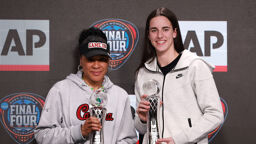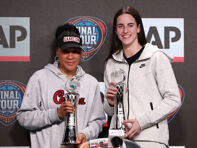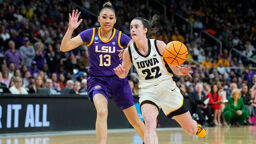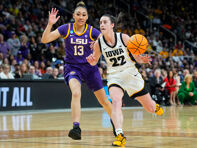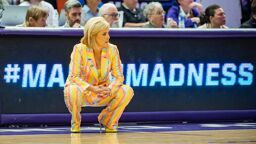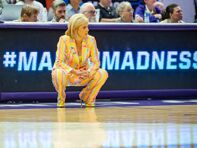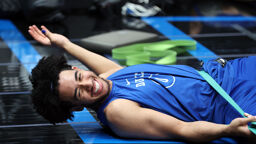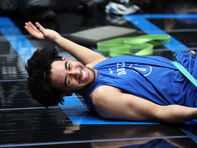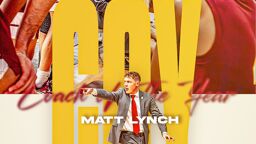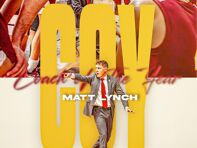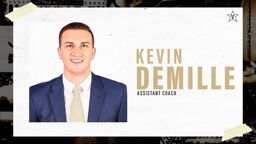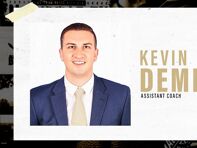It was one of the most monumental nights of Karleigh Webb’s life, and her softball family offered a toast. That day, Webb’s name change became legal, representing an enormous step in her transition. Prior to Webb’s entrance into the Southern New England Friendship League — Connecticut’s only surviving LGBT softball league — she says many league members had never met a trans person. Then the New England Barracudas entered the mix. The league’s newest team featured six trans players, and after playing like the 1962 Mets when they first stepped onto the field, they reached the playoffs last season. The winning felt great, but most of all, Webb savored her new community.
She’s definitely missing it this spring.
“For so many of us, this is our connection,” Webb, an Outsports contributor, told me. “The biggest thing we’re dealing with as a rainbow family, and trans family in particular, is isolation. I’m an operator for Trans Lifeline. The majority of calls I’m getting right now are people saying, ‘I’m lonely. I need connection. Our support group is not meeting. Or they are meeting on Zoom, but I don’t have a computer.’ These leagues are lifelines. They are connections for people. It’s tough not to have these things right now.”
The coronavirus pandemic has halted the entire sports world, including our LGBT sports leagues. In cities across the country, tens of thousands of LGBT people participate in these inclusive sports leagues, which yes, can be competitive, but most of all, represent community and camaraderie. For many, it is the first time they feel comfortable throwing a ball or competing in any sort of athletic contest. I was petrified when I showed up to my first practice for Boston’s FLAG Flag Football, only to find out hugs are doled out as generously as touchdown passes.
Even before the coronavirus shutdown ravaged the restaurant industry, beloved gay watering holes were becoming vestiges of another era, when hooking up required more than posting anonymous torso pictures on Grindr. In 1976, there were an estimated 2,500 gay bars in the U.S. That number is now down to fewer than 1,400 worldwide. For queer women, the nighttime social scene is even more desolate. There are believed to be just 16 lesbian bars left in the entire country.
For Sarah Madey, who plays in The Women’s Boston Gay Basketball League, the draw to lacing up her sneakers each weekend goes well beyond the hardwood. A busy professional, it is the center of her social circle.
“There are an unfortunate number of lesbian or female-focused bars, restaurants and hangouts — not only in Boston, but around the country,” she said. “It’s nice that this exists to make up for the lack of that otherwise.”
Not so long ago, it would’ve been unfathomable to suggest LGBT people could find comfort in, of all things, playing sports. Homophobic attitudes pervade sports culture, and even today, casual homophobia is evident on fields and courts across the world. A 2015 study found 80 percent of all participants said they witnessed or experienced homophobic behavior in sports.
And yet, we are taking over. Young athletes continue to lead the way on LGBT representation, walking around high school and college campuses on a daily basis. As LGBT kids begin to see more representation in sports, it’s possible these recreational leagues could become the new gathering place, with a little physical activity mixed in.
“The tradition will survive, it will just survive in a new form,” Webb said. “It will expand. It will expand to not just be the gay watering hole, but the watering hole for the whole rainbow community. That renaissance and awakening is coming slowly but surely, but especially in our leagues, it really came.”

LGBT sports leagues go well beyond the traditional team sports as well. In my hometown of Boston, there are dozens of leagues, including groups that play darts and cornhole. We also have Gay Kickball and Gay Dodgeball, which operate in 15 and 12 cities, respectively. Commissioner Keith London, a former American Idol contestant, says he thinks the social aspect of his leagues are far more important than the games, no matter how fun it may be to release your inner-child and go all-out for dodgeball.
“It’s just sad. People really look forward to this,” he said. “The mental health of being stuck at home is really affecting players. We’re trying to set up stuff on Zoom, and still trying to get people interacting. But it’s not the same as being in-person and outdoors throwing balls with each other, or kicking kickballs. I definitely think it is bad right now, but it’s something that will be good, because so many people miss it, and never realize how much they would miss it. But right now, we’re just kind of frozen. That’s the word I’ve been using a lot.”
I know I miss my flag football league, which I often cursed on early drives to the fields following long Friday nights (or mornings, whatever). As I sit in quarantine, I have come to recognize that league served as my social center each fall and spring, always providing me with opportunities to meet new people and make new connections. Let’s just say: I yearn for my routine of the post-Blarney Stone power nap, followed by a mad dash to attend whatever theme night everybody else was going to.
For Dan Nadeau, who joined FLAG Flag Football as a young father with two kids, it was his entree into the LGBT world. He’s now played in the league for 16 years, even serving on its board.
“I was slowly coming out and starting to accept who I was, and then (a friend) basically said, ‘It would be the best thing for you to join this league. You’re going to meet other LGBT friends, advocates and people from all walks of life who have all of these things in common,’ and that was true,” he said. “I met a very broad and diverse spectrum of people who are different than me, but also with whom I could connect through sport. That allowed me to see myself as a gay man.”
Randy Coté, a longtime hockey fanatic who plays in the Greater Seattle Hockey League, the largest adult hockey league in the U.S., was hoping to build that sort of tight-knit community in his city around the game he loves. Along with several other players, including Joey Gale, who came out in Outsports last year, he joined the effort to launch the Seattle Pride Hockey Association. They registered with the IRS, set up committees and booked the ice for their scheduled inaugural tournament in June.
The coronavirus has delayed those plans indefinitely.
“There’s this big misconception that hockey is this macho sport for straight men only,” he said. “But there are people of color who play hockey, there are LGBT people who play hockey. We think it’s really important to bring that visibility.”
Coté, a former sports executive who’s worked for the Seattle Storm and Thunderbirds, says there are multiple out LGBT players in his current hockey league. They are dispersed evenly across teams, and he says everybody still finds a way to bond. It sounds corny, but sports have a real power to bring people together, especially when prejudices are left on the sidelines.
“It’s the people you miss,” he said. “You can text with people, you can call people, I FaceTimed with one of my players. You try to keep in touch. But there’s nothing like being all together, working together and having fun.”
When I asked everybody with whom I spoke what they miss most about their leagues, none of them mentioned the actual sport itself. Sure, that’s part of the fun, but it’s really about the people. We compete on the field, but off of it, we know we’re fighting the same fight.
“There’s a camaraderie even in the competition,” Webb said. “There’s a camaraderie when we’re trying to beat each other’s brains out — we want to win. But we understand when we go out in the world, we’re on the same team together.”



